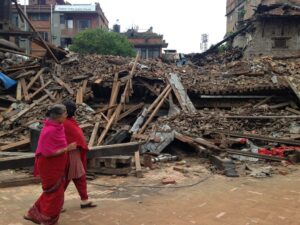
Tokyo Shaken by 7.1 Magnitude Earthquake! Tsunami Alert Issued—Find Out What’s Next!
Contents
Earthquake in Japanese
Tokyo Shaken by 7.1 Magnitude Earthquake! Tsunami Alert Issued—Find Out What’s Next!
On August 8, 2024, Japan experienced a powerful earthquake with a magnitude of 7.1. The tremor struck off the eastern coast of Kyushu, Japan’s southern main island, at a depth of about 30 kilometers (18.6 miles). The Japan Meteorological Agency (JMA) reported that the quake triggered a tsunami advisory, urging residents to avoid the coastline.


Key Details of the Earthquake:
- Magnitude and Epicenter: The earthquake registered a magnitude of 7.1 and was centered in waters off the eastern coast of Kyushu.
- Depth: The quake occurred at a depth of approximately 30 kilometers (18.6 miles).
- Affected Areas: The tremor was most strongly felt in Nichinan city and nearby areas in Miyazaki Prefecture on Kyushu Island.
Tsunami Advisory:
- Tsunami Waves: Tsunami waves of up to 50 centimeters (1.6 feet) were detected along parts of Kyushu’s southern coast and the nearby island of Shikoku approximately 30 minutes after the earthquake.
- Precautions: Residents were advised to stay away from the coastline as a precautionary measure.
Response and Impact:
- Emergency Meetings: Seismologists convened an emergency meeting to assess the potential impact on the Nankai Trough, known for its history of devastating earthquakes.
- Damage Reports: Initial reports indicated broken windows at Miyazaki Airport near the epicenter. However, there were no immediate reports of injuries or serious damage.
- Nuclear Safety: The Nuclear Regulation Authority confirmed that all 12 nuclear reactors on Kyushu and Shikoku, including the three currently operational, remained safe. The 2011 Fukushima disaster heightened concerns about nuclear safety in the wake of earthquakes.


Additional Information:
- Historical Context: Japan, situated on the Pacific “Ring of Fire,” is one of the world’s most earthquake-prone countries. The region’s seismic activity has a long history, including a significant earthquake and tsunami in March 2011 that led to the Fukushima nuclear disaster.
- Recent Events: An earlier earthquake on January 1, 2024, in Japan’s north-central region of Noto resulted in over 240 fatalities.
Advantages
- Public Safety: Early issuance of a tsunami advisory and precautionary measures help to minimize potential harm to residents.
- Nuclear Safety Assurance: The confirmation of safety for nuclear reactors provides reassurance amidst the concerns related to earthquakes.
- Effective Emergency Response: Swift emergency meetings and safety assurances demonstrate Japan’s robust disaster response capabilities.
- Resilience: The ongoing monitoring and preparedness reflect Japan’s resilience and commitment to managing natural disaster risks effectively.


Disadvantages
- Potential for Damage: Despite no immediate reports of severe damage, the risk of structural impacts and disruptions to daily life remains.
- Tsunami Risk: The tsunami advisory highlights the ongoing threat of coastal flooding and the need for continued vigilance.
Conclusion
The 7.1 magnitude earthquake off the coast of Kyushu has prompted a tsunami advisory and heightened vigilance for potential impacts. While there have been no immediate reports of severe damage or injuries, ongoing assessments and precautions are in place to ensure public safety. Japan’s geographical location and history of seismic activity underscore the importance of preparedness and resilience in the face of such natural disasters.


FAQs
- What was the magnitude of the earthquake that hit Japan?
The earthquake had a magnitude of 7.1. - Where was the epicenter of the earthquake?
The epicenter was located in waters off the eastern coast of Kyushu, Japan’s southern main island. - Was there a tsunami warning issued?
Yes, a tsunami advisory was issued, with tsunami waves of up to 50 centimeters (1.6 feet) detected along parts of Kyushu’s southern coast and Shikoku. - Were there any immediate reports of injuries or serious damage?
There were no immediate reports of injuries or serious damage, though there were reports of broken windows at Miyazaki Airport. - How did the earthquake affect nuclear power plants?
The Nuclear Regulation Authority confirmed that all 12 nuclear reactors on Kyushu and Shikoku remained safe.




















1 comment